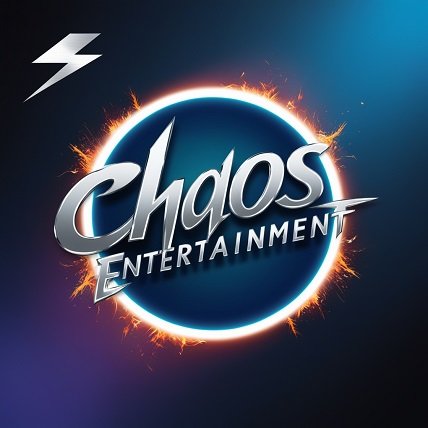The idea of chaos entertainment provides a novel twist in a society where routine and predictability are becoming more and more important. It pushes past our comfort zones and opens our minds to completely new possibilities for enjoyment and interaction. With its unpredictable and dynamic components, chaos entertainment upends conventional forms of entertainment, whether it is in gaming, media, or live events. This blog post explores the definition of chaos entertainment, its different manifestations, and the reasons behind its widespread appeal.
Understanding Chaos Entertainment
The term chaos entertainment describes types of amusement that are dynamic and unpredictable. chaos entertainment focusses on surprise and unpredictability, in contrast to traditional entertainment, which frequently follows structured narratives or predictable patterns. It all comes down to accepting the unexpected and letting the moment unfold naturally. Fundamentally, chaotic entertainment investigates how enjoyment and engagement can be increased by unpredictability. It’s a reaction to the increasing need for experiences that transcend the ordinary and are more immersive and interactive.
The Appeal of Unpredictability
Why is it that we like uncertainty so much? The human brain is hardwired to look for trends and make predictions. Uncertainty has the potential to increase enthusiasm and engagement. The allure of chaos entertainment stems from this element of surprise. A sense of novelty and challenge that is brought about by unpredictability can be both rewarding and exciting. The entertainment becomes more memorable and engaging as a result of its ability to pique our curiosity and keep us alert.
Chaos Entertainment in Video Games
One of the best examples of chaotic entertainment is seen in video games. The concepts of chaos entertainment are frequently embodied in games with dynamic storylines, randomly generated landscapes, and adjustable difficulty settings. Games like “Minecraft” and “No Man’s Sky” offer large, unpredictable worlds where no two encounters are the same. This tendency is further demonstrated by the growth of roguelikes and roguelites. Randomisation is a feature of games like “Hades” and “Dead Cells,” which makes every playthrough unique and increases replayability while maintaining player engagement.
Reality TV: A Playground for Chaos
For a long time, reality TV has been linked to chaotic entertainment. Unscripted drama and the unpredictable nature of real-life interactions are what make this genre so great. To keep viewers interested, shows like “Survivor” and “Big Brother” frequently feature tension and unexpected moments. Unexpected turns, fresh challenges, and abrupt eliminations are all common in reality TV formats, which make for an exciting and tumultuous watch. This element of surprise plays a major role in holding viewers’ attention and propelling the show’s popularity.
Live Events and Interactive Experiences
A growing number of live events, including plays, concerts, and interactive exhibits, are incorporating chaos entertainment. Real-time feedback, audience engagement, and improvisation are frequently included in these performances. For example, improv theatre always creates a unique experience because it depends only on audience participation and spontaneity. In a similar vein, participants are kept interested by unexpected story twists and obstacles seen in both immersive theatre and escape rooms.
Chaos Theory and Entertainment
There are interesting links between chaos theory, a field of mathematics that studies systems that behave in unanticipated ways, and entertainment. The unexpected character of chaos entertainment is reflected in the idea that tiny modifications in beginning conditions can result in radically diverse outcomes in chaotic systems. Gaining knowledge of chaos theory can help with designing entertainment experiences to increase engagement and unpredictability. It also emphasises the possibility of designing intricate and captivating systems.
The Role of AI in Chaos Entertainment
In chaos entertainment, artificial intelligence (AI) is becoming more and more important. Procedurally generated content, such dynamic gaming worlds or adaptive stories, can be produced by AI so that it can react in real time to player activities. AI-powered systems that analyse user behaviour and modify the experience accordingly might potentially increase unpredictability. chaos entertainment excels at customising events to each person’s tastes while retaining a sense of surprise.
Conclusion
A fascinating trend in the amusement industry, chaos entertainment emphasises unpredictability and dynamic change. The regular patterns of traditional entertainment are broken up by chaos entertainment, which can range from video games and reality TV to live events and social media. chaos entertainment engages and entertains us in surprising and inventive ways by welcoming the unexpected. The potential for chaos entertainment is endless as technology develops further, offering even more thrilling and immersive experiences in the future.
FAQ
What is chaos entertainment?
The term chaotic entertainment describes types of amusement that are dynamic and unpredictable. Unlike more conventional, planned types of entertainment, it embraces the unexpected and lets spontaneity take control of the experience.
How does chaos entertainment differ from traditional entertainment?
While chaos entertainment thrives on surprise and unpredictability, traditional entertainment frequently follows structured tales or predictable patterns. It focusses on using unpredictability and dynamic components to create experiences that are interesting.
What are some examples of chaos entertainment in video games?
Examples include roguelikes like “Hades” and “Dead Cells,” which have randomisation and adaptive difficulty, and games with procedurally generated worlds like “Minecraft” and “No Man’s Sky.”

